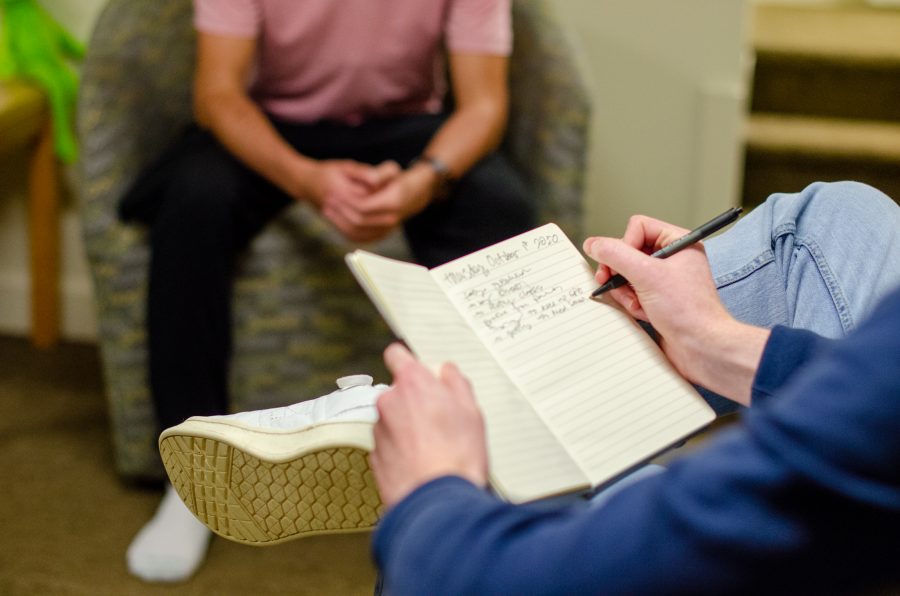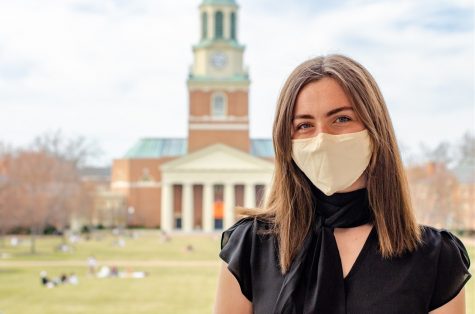In this third installation about the various mental health resources that exist on Wake Forest’s campus, the University Counseling Center (UCC) is the final subject at hand. And what better way to examine the UCC’s impact on campus than by interviewing the very individuals who benefit from its services the most: Wake Forest students.
Between the Chaplain’s Office, the Office of Wellbeing and the Counseling Center, the UCC is the university office most commonly associated with mental health resources on campus.
This academic year, the UCC is home to a number of staff psychologists and counseling interns but is still forced to function without a full-time director. Similar to the Office of Wellbeing, the UCC is currently understaffed at 75% of work capacity and students have taken notice.
With such an emphasis placed on the physical health of students throughout this pandemic, a number of students are frustrated with the lack of attention the administration has given to offices dedicated to mental health support.
In an online petition posted on change.org, over 500 Wake Forest students requested two things: that the UCC remain fully staffed with no staff cuts and that more counselors be hired to “fully accommodate the needs of the students during this time.”
Three months after these demands were posted, no changes have been made.
This semester, the UCC is approaching mental health care provision from an equity standpoint. As stated on the Counseling Center’s website, “students who experience multiple barriers to accessing quality services outside the center will be prioritized to receive counseling services within the center.”
In other words, the UCC is encouraging students who have a record of receiving aid from mental health care providers from home to continue to see those therapists virtually. Additionally, the UCC is urging students who possess the financial means to seek help off campus to do so.
And for those who receive on-campus assistance from the UCC, that help is not always provided in a one-on-one setting.
Senior Gwyneth Lonergan has been a returning student at the UCC ever since her first year at Wake Forest. For the first two-and-a-half years, Lonergan met regularly with a staff psychologist in the UCC. However, half-way through her junior year, the staff member left and Lonergan lost almost all forms of consistency.
Now, due to a lack of appointments caused by a decrease in work capacity and COVID-19 circumstances, Lonergan is participating in one of the many group therapy options that is being offered to students. But according to her, it is just not the same.
“They need to make first-timers a priority. The sad reality is, if someone has a negative first experience, they are never going to seek out the UCC again,” Lonergan said.
Sophomore Ansley Henderson knows very well how a negative first-time experience can drive students away from the support they need.
“I remember walking into the Counseling Center my freshman year in tears and being put on the schedule over two weeks later. There are just not a lot of appointments available,” Henderson said. “The one thing I like about the office is the fact that the appointments are free. But getting medication through the UCC has also been difficult for me … I just go off campus now.”
Despite their different experiences, both Henderson and Lonergan empathize with the UCC and the struggles they are facing throughout this difficult and unpredictable time.
“Ultimately, I know it’s not the Counseling Center’s fault, it’s the university’s [fault] with their understaffing,” Lonergan said. “They’re not prioritizing the Counseling Center even though they encourage students to seek out help and go to the Counseling Center.”
While a number of students have had mixed, or even negative, experiences with the UCC, many more report how wonderful their experiences with the office have been.
Junior Grace Sullivan compared and contrasted her pre- and post-COVID-19 experiences at the Counseling Center with a smile.
“Right now, even though I have had to talk with multiple counselors through the center, they have really been working to find time for me,” Sullivan said. “I will say though, if you do not connect with them early in the semester, it is almost impossible to find time to get in if you are really struggling.”
To combat this very problem, the UCC is hosting drop-in appointments for first-time visitors and students who require “brief, solution-focused support.”
However, the best way to address the ongoing lack of readily available appointments to students is still by allocating more funding to the UCC and providing Wake Forest students, faculty and staff with the help they so desperately need.
“Don’t be afraid to reach out and ask for help,” said sophomore Marilla Morrison when asked if she had any advice for students considering visiting the UCC. “They are so welcoming and all they want to do is help you through what you are going through.”
For urgent mental health crises anytime, call 336.758.5273. To make an appointment with the UCC, 336.758.5273.















